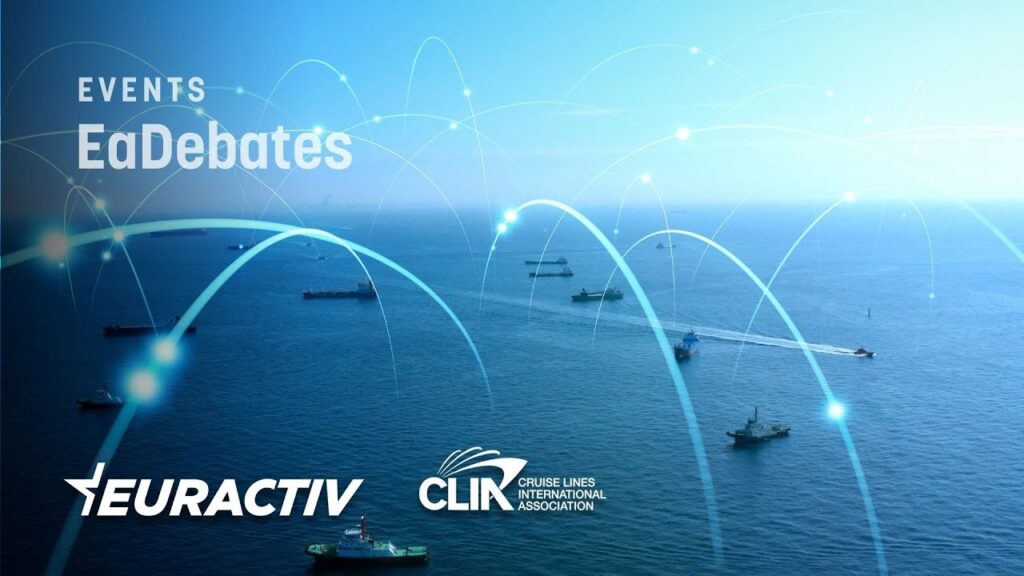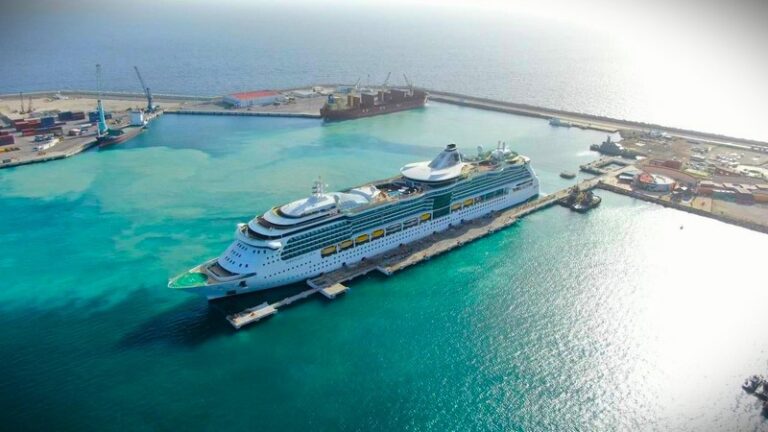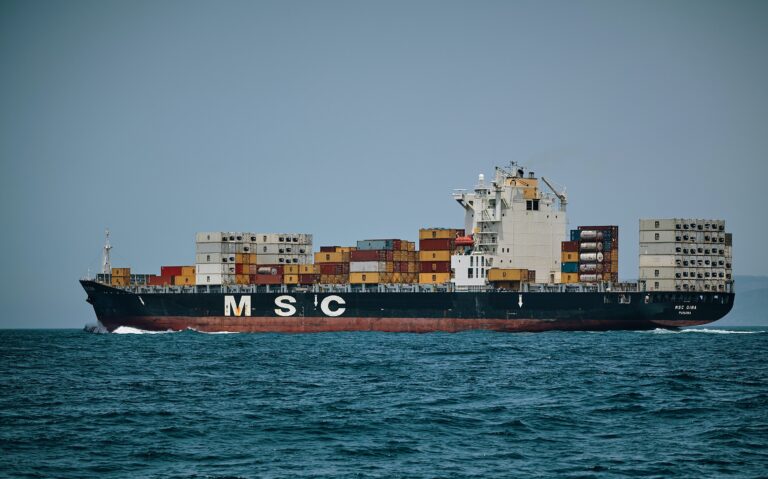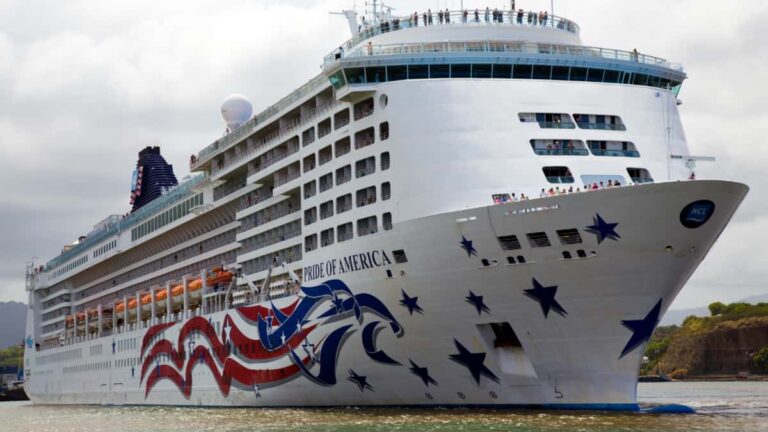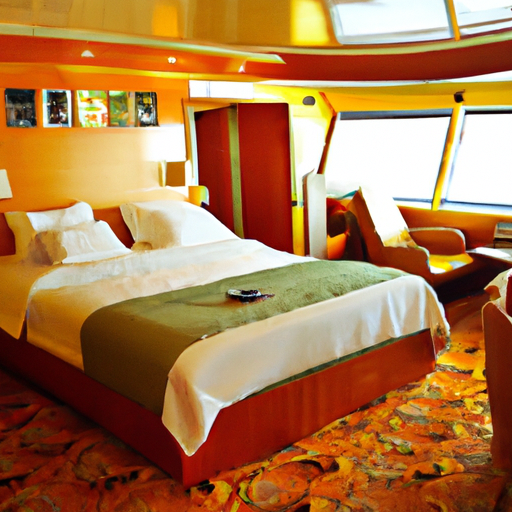European Cruise Service Reports Successful Implementation of Zero-Emission Strategy
In a recent report, European Cruise Service has announced the successful implementation of its zero-emission strategy. The cruise company has focused on delivering quality services while investing in the electrification of its transport services, resulting in strong growth in traffic in Norway. This achievement is especially significant for regional destinations like Flåm, Geiranger, and the North Cape. With a commitment to achieving emission-free transport for cruise passengers on land by 2030, European Cruise Service is actively working towards environmental certifications and collaborating with partners to electrify modes of tourist transport. The company’s efforts align with its mission to better distribute cruise traffic, contribute to local value creation, and promote sustainable cruise tourism in Norway.
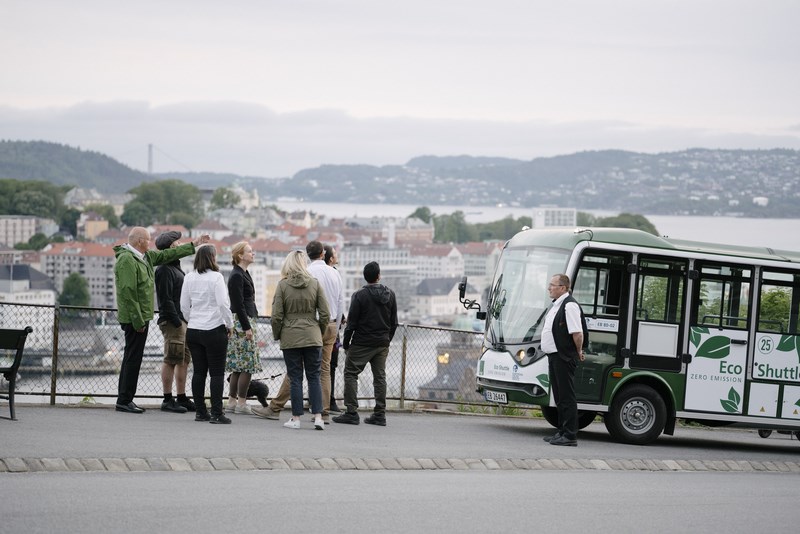
Overview of European Cruise Service’s Zero-Emission Strategy
European Cruise Service (ECS) is a leading cruise service provider that has implemented a comprehensive zero-emission strategy. This strategy aims to reduce the company’s environmental impact and contribute to the global green travel movement. ECS has set ambitious goals for 2030 and has been making significant progress towards achieving them. The company has also formed partnerships and collaborations to further support its zero-emission initiatives.
Origins of the zero-emission strategy
The zero-emission strategy of European Cruise Service was born out of a commitment to sustainability and environmental responsibility. The company recognized the need to reduce its carbon footprint and mitigate the negative impacts of cruise tourism on the environment. This led to the development of a comprehensive strategy that focuses on electrification, education, sustainable supply chain practices, legislative advocacy, and technological innovation.
Main components of the strategy
The zero-emission strategy of ECS consists of several key components. Firstly, the company has made significant investments in the electrification of its transport services. By replacing traditional vehicles with electric ones, ECS aims to eliminate emissions associated with transportation. Additionally, ECS has implemented training and education programs for its staff to raise awareness about sustainability and promote environmentally friendly practices. The company has also adapted its supply chain to prioritize sustainable services, such as using eco-friendly materials and reducing waste.
The company’s ambitious goals for 2030
European Cruise Service has set ambitious goals for 2030 to accelerate its progress towards zero emissions. The company aims to achieve emission-free transport for cruise passengers on land well before the target date. ECS is also working towards environmental certifications, such as Travelife and GSTC, to further validate its commitment to sustainability. These certifications will help showcase the company’s efforts and ensure compliance with international standards.
Contribution to the global green travel movement
By implementing its zero-emission strategy, European Cruise Service is making a significant contribution to the global green travel movement. The company’s efforts to reduce emissions and promote sustainable practices serve as an example for other cruise services. ECS is setting a precedence for the industry by demonstrating that it is possible to operate in an environmentally responsible manner. This not only benefits the environment but also enhances the reputation of the cruise industry as a whole.
Partnerships and collaborations under the strategy
European Cruise Service understands the importance of collaboration in achieving its zero-emission goals. The company has formed partnerships and collaborations with various organizations to further support its sustainability initiatives. One such collaboration is with Boreal Travel, which plays a significant role in implementing the zero-emission strategy. Boreal Travel supplies electric vehicles that align with ECS’s requirements, enabling the company to provide emission-free transport for its passengers. These partnerships and collaborations contribute to the overall success of the strategy and drive innovation in sustainable cruise services.
Implementation Process of the Strategy
Implementing a zero-emission strategy involves several key steps and considerations. European Cruise Service has taken a comprehensive approach to ensure the successful implementation of its strategy.
Investments made in electrification of transport services
One of the main components of ECS’s strategy is the electrification of its transport services. The company has made significant investments in acquiring electric vehicles and charging infrastructure. By replacing traditional vehicles with electric ones, ECS aims to eliminate emissions associated with transportation. This investment not only reduces the company’s environmental impact but also sets an example for other cruise services to follow.
Training and education programs for staff
To ensure the success of the zero-emission strategy, European Cruise Service has implemented training and education programs for its staff. These programs aim to raise awareness about sustainability and promote environmentally friendly practices. By educating its staff, ECS ensures that everyone is aligned with the company’s sustainability goals and actively contributes to reducing emissions and promoting greener practices.
Supply chain adaptations for sustainable services
European Cruise Service has recognized the importance of adapting its supply chain to prioritize sustainable services. The company has worked closely with its suppliers and partners to identify and implement environmentally friendly practices. This includes sourcing eco-friendly materials, reducing waste, and optimizing logistics to minimize emissions. These adaptations in the supply chain contribute to the overall reduction in the company’s environmental impact.
Legislative hurdles and overcoming them
Implementing a zero-emission strategy often involves navigating legislative hurdles. European Cruise Service has actively engaged with policymakers and advocated for regulatory changes that support sustainable practices. By participating in discussions and lobbying for favorable legislation, ECS has been able to overcome these hurdles and create an enabling environment for its zero-emission initiatives. This proactive approach highlights the company’s commitment to driving systemic change in the cruise industry.
Role of technology and innovation in the implementation process
Technology and innovation play a crucial role in the implementation of ECS’s zero-emission strategy. The company leverages technological advancements to optimize its operations, improve energy efficiency, and reduce emissions. This includes implementing smart grid systems, using renewable energy sources, and adopting energy management technologies. By embracing innovation, ECS ensures that it stays at the forefront of sustainable cruise services and continues to drive positive change in the industry.
Current Status and Successes of the Strategy
European Cruise Service has made significant progress in implementing its zero-emission strategy. The company’s commitment to sustainability has resulted in several successes and positive outcomes.
Progress made in terms of emission reduction
One of the key indicators of success for the zero-emission strategy is the reduction in emissions. European Cruise Service has made significant progress in this area by transitioning to electric vehicles and implementing energy-efficient practices. The company has seen a substantial decrease in carbon emissions associated with its transport services. This progress demonstrates the effectiveness of the strategy and reaffirms ECS’s commitment to sustainability.
Extent of adoption of electric transport services
As part of its strategy, European Cruise Service has prioritized the adoption of electric transport services. The company has successfully integrated electric vehicles into its operations, with a growing proportion of smaller electric vehicles being used in Norwegian ports. In some ports, up to 80 percent of passenger transport is already conducted using electric vehicles. This widespread adoption of electric transport services showcases ECS’s commitment to emission-free travel and sets an example for other cruise services to follow.
Recognitions and awards received
European Cruise Service’s efforts towards zero emissions and sustainability have not gone unnoticed. The company has received several recognitions and awards for its commitment to environmental responsibility. These accolades validate ECS’s approach and serve as a testament to its success in implementing the zero-emission strategy. They also contribute to the company’s reputation as a leader in sustainable cruise services.
Achievements in numbers: Passengers served and emissions saved
Quantifying the impact of the zero-emission strategy, European Cruise Service has achieved impressive numbers in terms of passengers served and emissions saved. The company has seen a steady increase in the number of passengers opting for its sustainable services. This growth indicates a positive market response to eco-friendly cruising options. Additionally, ECS’s emission reduction efforts have resulted in substantial savings in carbon emissions, contributing to the overall fight against climate change.
Feedback from customers and stakeholders
European Cruise Service values feedback from its customers and stakeholders. The company actively seeks input and engages in dialogue to understand the impact of its zero-emission strategy. Feedback from customers has been overwhelmingly positive, with many expressing appreciation for ECS’s commitment to sustainability. Stakeholders, including local authorities and businesses, have also applauded the company’s efforts and have been supportive of its initiatives. This feedback further motivates ECS to continue its sustainability journey and drives continuous improvement.
Zero-Emission Strategy’s Impact on Cruise Industry
European Cruise Service’s zero-emission strategy has had a profound impact on the cruise industry as a whole. The company’s initiatives have led to several positive outcomes and set new standards and expectations for the industry.
Setting precedence for other cruise services
By implementing its zero-emission strategy, European Cruise Service has set a precedence for other cruise services. The company’s commitment to sustainability and its success in reducing emissions serve as an example for the entire industry. Other cruise services are now encouraged to prioritize sustainability and explore ways to reduce their environmental impact. ECS’s leadership in this area has paved the way for a more sustainable future for the cruise industry.
Influencing industry standards and regulations
European Cruise Service’s zero-emission strategy has not only influenced individual companies but also industry standards and regulations. By actively engaging with policymakers and advocating for sustainable practices, ECS has contributed to the development of regulations that support emissions reduction and environmentally friendly operations. These industry standards and regulations establish a framework for cruise services to follow and ensure that sustainability becomes a key consideration across the industry.
Promoting green cruising among consumers
The zero-emission strategy of European Cruise Service has played a significant role in promoting green cruising among consumers. The company’s commitment to sustainability has resonated with environmentally conscious travelers who are increasingly seeking eco-friendly travel options. By offering emission-free transport and promoting sustainable practices, ECS attracts a niche market segment of environmentally conscious travelers. This market response encourages other cruise services to adopt similar practices and cater to this growing demand.
Market response and competitive advantages gained
The market response to European Cruise Service’s zero-emission strategy has been overwhelmingly positive. The company has gained a competitive advantage by being at the forefront of sustainable cruise services. Consumers are increasingly choosing ECS for its commitment to sustainability and eco-friendly operations. This competitive advantage positions the company as a leader in the industry and contributes to its continued success.
Contribution to substantive climate change mitigation
Perhaps the most significant impact of European Cruise Service’s zero-emission strategy is its contribution to substantive climate change mitigation. By reducing emissions and promoting sustainable practices, the company actively contributes to the global efforts to combat climate change. The cruise industry, which traditionally has a considerable carbon footprint, can learn from ECS’s approach and work collectively towards a more sustainable future. The impact of ECS’s strategy extends beyond the industry and contributes to the broader global movement towards a greener planet.
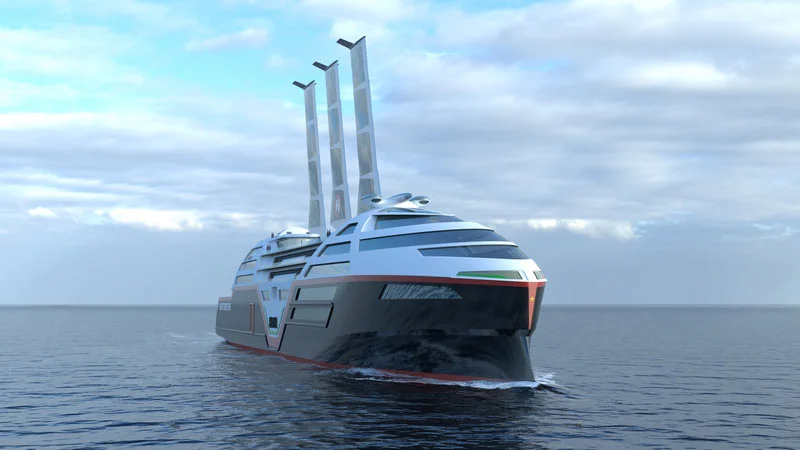
Challenges Faced during Implementation
Implementing a zero-emission strategy is not without its challenges. European Cruise Service has encountered various obstacles throughout the implementation process and has successfully overcome them.
Technical issues with electric vehicles
One of the main challenges faced during the implementation of the zero-emission strategy was related to technical issues with electric vehicles. As ECS transitioned to electric transport services, it encountered challenges such as charging infrastructure availability and vehicle range limitations. However, with careful planning and partnerships with industry experts, the company was able to address these challenges and find suitable solutions. This experience has strengthened ECS’s expertise in electric vehicle operations and has positioned the company as a leader in sustainable transport services.
Investment requirements for electrification
Implementing a zero-emission strategy often requires significant investments in infrastructure and equipment. European Cruise Service faced the challenge of securing the necessary funds for the electrification of its transport services. However, the company recognized the long-term benefits of these investments and successfully secured financing through partnerships, collaborations, and government incentives. This financial commitment demonstrates ECS’s dedication to sustainability and its willingness to invest in a greener future.
Challenges in operation and service delivery
Implementing sustainable practices often requires operational changes and adjustments. European Cruise Service faced challenges in transitioning its operations to align with the zero-emission strategy. This included training staff on new processes, optimizing logistics, and ensuring smooth service delivery. Despite these challenges, ECS has continuously improved its operations and overcome any hurdles to provide high-quality, sustainable services to its customers.
Resistance from various stakeholders
The transition towards a zero-emission strategy often faces resistance from various stakeholders, including employees, suppliers, and even customers. European Cruise Service encountered resistance from some stakeholders, who were initially skeptical of the changes and additional costs associated with sustainability initiatives. However, through effective communication, stakeholder engagement, and showcasing the benefits of sustainable practices, ECS was able to overcome this resistance and gain support from all stakeholders. This collaboration and alignment of interests have been instrumental in the successful implementation of the zero-emission strategy.
Logistical obstacles and how they were overcome
Logistical obstacles are common when implementing a zero-emission strategy, especially in an industry as complex as cruise tourism. European Cruise Service faced logistical challenges, such as coordinating charging infrastructure installations, managing vehicle fleets, and optimizing routes to maximize efficiency. Through careful planning, collaboration with partners, and leveraging technology, ECS was able to overcome these obstacles. The company developed robust logistics systems and processes that ensure seamless operations and reduce the logistical impact on the environment.
Future Plans under the Zero-Emission Strategy
European Cruise Service continues to have ambitious plans for the future as it strives towards achieving its zero-emission goals.
Further electrification plans
ECS plans to further expand its electrification efforts by transitioning its entire fleet to electric vehicles. The company aims to eliminate emissions associated with transportation entirely and become a leader in the field of sustainable cruise services. By continuing to invest in electric vehicles and charging infrastructure, ECS demonstrates its long-term commitment to reducing its environmental impact and leading the way towards a zero-emission future.
Launching of new environmentally friendly tours
As part of its zero-emission strategy, European Cruise Service plans to launch new environmentally friendly tours. These tours will focus on showcasing the beauty of natural landscapes while minimizing environmental impact. By designing tours that prioritize sustainability and engage in responsible tourism practices, ECS aims to provide unique and memorable experiences to its passengers while simultaneously preserving and protecting the environment.
Expansion of the zero-emission initiative to other regions
While ECS has made significant progress in implementing its zero-emission strategy in Norway, the company plans to expand its initiative to other regions. By partnering with local authorities and businesses, ECS aims to replicate its success in other cruise destinations. This expansion will not only have a positive impact on the environment but also contribute to local value creation and job opportunities. European Cruise Service’s commitment to local development sets an example for other cruise services and demonstrates the potential for sustainable tourism growth.
Collaborations and partnerships for future sustainability initiatives
European Cruise Service recognizes the importance of collaborations and partnerships in driving sustainability initiatives. The company plans to form new collaborations and partnerships with like-minded organizations to further support its zero-emission strategy. By working together, ECS aims to share best practices, exchange knowledge, and collectively contribute to a greener cruise industry. These collaborations will enhance the effectiveness of the company’s sustainability efforts and foster innovation in sustainable cruise services.
Technological advancements to support future plans
As technology continues to evolve, European Cruise Service plans to leverage technological advancements to support its future plans. The company aims to explore new technologies that can further optimize its operations, reduce emissions, and enhance guest experiences. This commitment to technological innovation ensures that ECS remains at the forefront of sustainable cruise services and continues to drive positive change in the industry.
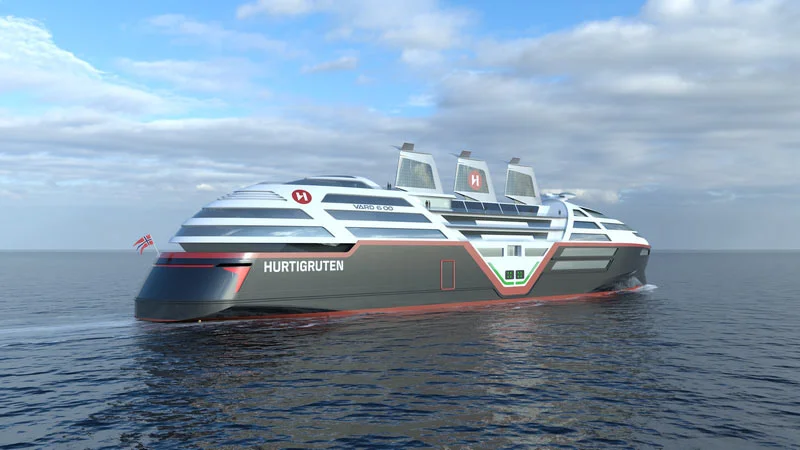
ECS’s Collaboration with Boreal Travel
European Cruise Service’s collaboration with Boreal Travel is a crucial aspect of its zero-emission strategy.
Role of Boreal Travel in implementing the strategy
Boreal Travel plays a significant role in implementing ECS’s zero-emission strategy. As the company’s main collaborative partner, Boreal Travel is responsible for acquiring electric vehicles that align with ECS’s requirements. The partnership ensures a sustainable supply of electric vehicles for ECS’s transport services, enabling the company to provide emission-free experiences to its passengers.
Supply of electric vehicles
Boreal Travel supplies European Cruise Service with electric vehicles that are specifically tailored to meet the company’s sustainability goals. By providing a reliable supply of electric vehicles, Boreal Travel supports ECS’s efforts to transition to a zero-emission fleet. The partnership between the two companies demonstrates a shared commitment to sustainability and showcases the potential for collaboration in driving positive environmental change.
Cooperation on service delivery improvements
In addition to the supply of electric vehicles, Boreal Travel cooperates with European Cruise Service to improve service delivery. The two companies collaborate to optimize logistics, streamline operations, and ensure a seamless experience for passengers. By working together, ECS and Boreal Travel aim to provide high-quality, sustainable services that exceed customer expectations.
Achievements of the collaboration
The collaboration between European Cruise Service and Boreal Travel has yielded significant achievements. Together, the companies have successfully integrated electric vehicles into ECS’s operations and significantly reduced emissions associated with passenger transport. By combining their expertise and resources, ECS and Boreal Travel have demonstrated the power of collaboration in driving sustainability initiatives.
Future plans of the partnership
European Cruise Service and Boreal Travel plan to continue their partnership and explore new opportunities for collaboration. The companies aim to further enhance their joint efforts in implementing the zero-emission strategy. By leveraging each other’s strengths and working towards a shared vision, ECS and Boreal Travel will continue to make a positive impact on the cruise industry and the environment.
ECS’s Effort to Receive Environmental Certifications
European Cruise Service is dedicated to achieving environmental certifications that validate its commitment to sustainability and responsible tourism.
Process of achieving Travelife and GSTC certifications
ECS is actively working towards obtaining environmental certifications, including Travelife and GSTC. The company is in the process of meeting the strict criteria and requirements set by these certification bodies. By undergoing rigorous assessments and audits, ECS aims to demonstrate compliance with international sustainability standards and showcase its commitment to responsible tourism.
Role of certifications in the company’s branding and marketing
Environmental certifications play a crucial role in the branding and marketing efforts of European Cruise Service. These certifications serve as independent verification of the company’s sustainable practices and differentiate it from competitors. By prominently displaying the certifications, ECS can attract environmentally conscious customers and strengthen its position as a leader in sustainable cruise services.
Plans for future certifications
Obtaining Travelife and GSTC certifications is just the beginning for European Cruise Service. The company has plans to pursue additional certifications that align with its sustainability goals. By continuously seeking certifications, ECS demonstrates its commitment to ongoing improvement and ensures that its operations and practices meet the highest industry standards.
Enhancing operational sustainability congruent with certification standards
European Cruise Service recognizes the importance of aligning its operational practices with the standards set by environmental certifications. The company continuously evaluates and improves its operations to ensure that they meet the criteria set by certifying bodies. This commitment to operational sustainability enhances the overall credibility of ECS as a sustainable cruise service provider.
Impacts of certifications on customer perception
Environmental certifications have a significant impact on customer perception of European Cruise Service. Customers are increasingly concerned about the environmental impact of their travel choices and actively seek out companies that prioritize sustainability. By obtaining certifications, ECS reassures customers that it operates in an environmentally responsible manner and provides them with a sense of trust and confidence. The certifications positively influence customer perception and contribute to the overall success of the company’s branding and marketing efforts.
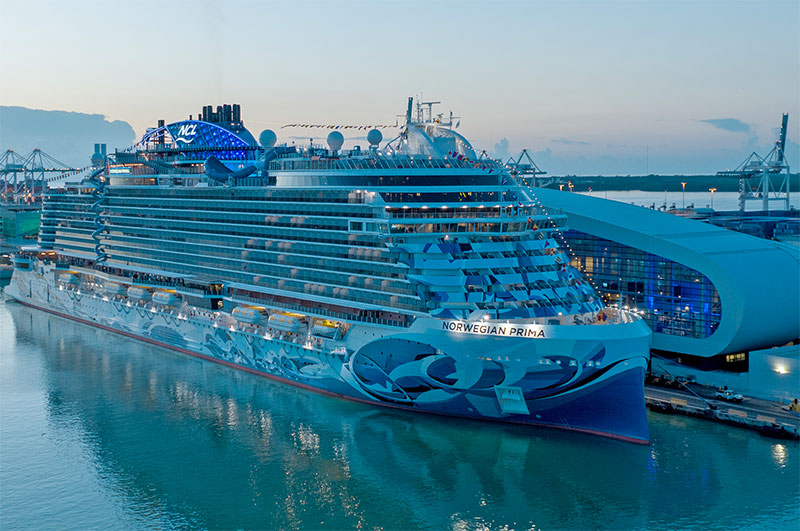
Creation of Platform for Sustainable Cruise Tourism
European Cruise Service has played a pivotal role in the creation of a platform for sustainable cruise tourism in Norway.
Role of CLIA and Cruise Norway in establishing the platform
The platform for sustainable cruise tourism in Norway was established through the collaborative efforts of European Cruise Service, CLIA (Cruise Lines International Association), and Cruise Norway. These organizations recognized the need for a united approach towards sustainability in cruise tourism and worked together to create the platform. The role of CLIA and Cruise Norway in establishing the platform was instrumental in bringing industry stakeholders together and fostering collaboration for a greener future.
Aims and goals of the platform
The platform for sustainable cruise tourism in Norway aims to achieve increased value creation from cruise tourism while simultaneously reducing emissions, pollution, and queues. The platform sets clear goals and objectives for the industry, such as promoting sustainable practices, enhancing local value creation, and improving infrastructure development. By aligning industry stakeholders towards a common vision, the platform aims to drive positive change and create a sustainable cruise tourism sector in Norway.
Resolutions of the platform against emissions and pollution
The platform for sustainable cruise tourism in Norway has adopted resolutions to address emissions and pollution. These resolutions include advocating for the use of onshore power systems, promoting the adoption of biofuels, and encouraging sustainable waste management practices. By collectively addressing emissions and pollution, the platform ensures that the cruise industry in Norway actively contributes to environmental preservation and protection.
Proposals for enhanced infrastructure development
Recognizing the importance of infrastructure in supporting sustainable cruise tourism, the platform has put forward proposals for enhanced infrastructure development. This includes advocating for the development of onshore power systems, expanding charging infrastructure for electric vehicles, and enhancing waste management facilities. These proposals aim to create an enabling environment for sustainable cruise tourism and support the industry’s transition towards zero emissions.
Impact on overall cruise tourism in Norway
The creation of the platform for sustainable cruise tourism in Norway has had a significant impact on the overall cruise tourism sector. The platform has united industry stakeholders and created a framework for collaboration and knowledge sharing. This collaborative approach has led to improved industry standards, enhanced sustainability practices, and increased value creation from cruise tourism. By working together, the industry has been able to address challenges, drive innovation, and ensure the long-term viability of cruise tourism in Norway.
ECS’s Commitment towards Local Development
European Cruise Service recognizes the importance of local development and actively supports initiatives that promote responsible tourism and boost the local economy.
Investments in local tourist spots
As part of its commitment towards local development, ECS has made significant investments in local tourist spots. The company recognizes the value of preserving and promoting the natural beauty of these spots and aims to provide sustainable experiences to its passengers. This investment not only enhances the attractiveness of the destinations but also contributes to the overall economic development of the local communities.
Increasing local value creation through cruise traffic
European Cruise Service strives to increase local value creation through cruise traffic. The company actively collaborates with local authorities and businesses to ensure that the economic benefits of cruising are distributed locally. ECS engages in partnerships that promote local employment, use local suppliers, and support local businesses. By focusing on local value creation, the company contributes to the socio-economic development of the communities it operates in.
Collaborations with local authorities and businesses
Collaboration with local authorities and businesses is a key aspect of European Cruise Service’s commitment towards local development. The company recognizes the importance of engaging with local stakeholders to ensure that its operations align with local interests and support sustainable development. By collaborating with local authorities and businesses, ECS can actively contribute to the well-being of the local communities it operates in and establish long-lasting partnerships that benefit all parties involved.
Positive impact on local economy and job creation
European Cruise Service has a positive impact on the local economy and job creation in the regions it operates in. The company’s investments, collaborations, and commitment to local value creation contribute to the economic growth of the communities. By attracting tourists and promoting responsible tourism practices, ECS creates job opportunities in the tourism sector and stimulates economic activity. The company’s commitment to sustainable job creation fosters long-term socio-economic benefits for the local communities.
Promoting responsible tourism in local areas
European Cruise Service actively promotes responsible tourism in the local areas it operates in. The company educates its passengers about the importance of preserving the environment and respecting local cultures and traditions. ECS encourages sustainable travel practices and offers experiences that have a minimal impact on the natural and cultural heritage of the destinations. By promoting responsible tourism, ECS aims to ensure the long-term sustainability and preservation of the local areas.
In conclusion, European Cruise Service’s zero-emission strategy is a comprehensive approach towards sustainability and environmental responsibility in the cruise industry. Through investments in electrification, training programs, supply chain adaptations, and collaborations, ECS has made significant progress in reducing emissions and promoting environmentally friendly practices. The company’s approach has set new standards, influenced industry regulations, and positively impacted the cruise industry as a whole. By overcoming challenges, setting ambitious goals, and actively contributing to local development, European Cruise Service is leading the way towards a greener and more sustainable future for cruise tourism.
